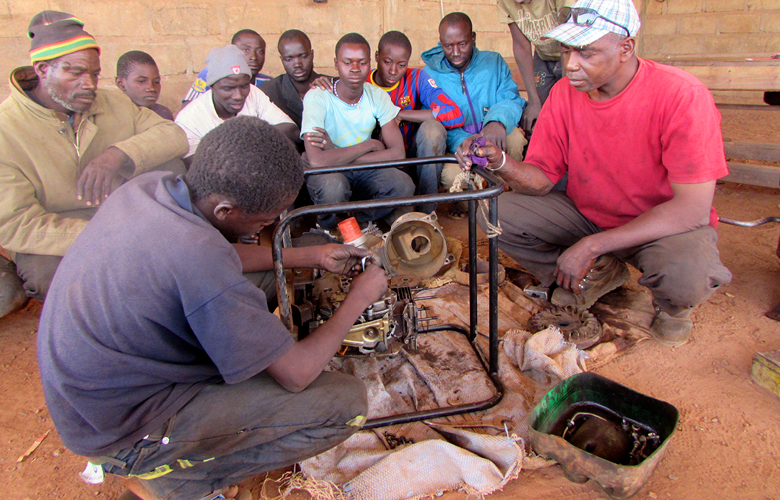
Forty percent of the world’s population is under 24 years-old and buckling under the weight of entrenched inequity and vulnerability. Disenfranchisement is seen as the result of a system that does not recognize young people or their struggles. The world’s youth populations will not be peaceful communities if the systems meant to deliver services are outdated and unresponsive to their needs today.
The United Nations as the world’s international peacekeeping leader is meant to resolve conflicts between nations and find shared solutions to common global challenges. There is a need to find new ways of working and innovative solutions to be able to respond to the challenges facing the world today.
Key Players
Recently, the UN Secretary-General Antonio Guterres presented the Common Agenda. In this report, the organization acknowledges that youth is the missing piece for sustainable peace and development, that their voices have been sidelined as part of discussions about the future that they will inherit. Youth indeed are central actors to both the challenges of our day and the solutions for tomorrow. The UN is wise to state that community-led partnerships that include these voices are essential to meet every sustainable development goal.
But this is about more than having a voice in the discussion or a seat at the table. There is also a need to recognize that the global community must invest in the basic needs of this half of the world’s population too. It is the only way we can ensure that the leaders of today and tomorrow are literate, skilled, civic-minded, and empathetic.
Effective Measures
To move beyond talking with youth and address the underlying challenges to equal partnership with them, the UN can make greater investments in the skills and competencies youth need to bring their best creative ideas and energy forward in positive ways. In other words, recognition, representation, inclusion and investment—as a package of services and supports—can go a long way to create legitimate, genuine, impactful partnerships and positive influencers.
Effective community-driven responses must reflect the diversity and individual challenges of the populations served and the clear expectations of partnership.
Norway, a UN Security Council member, offers a meaningful model on how to engage civil society as valued partners in systems-strengthening, peacekeeping and positive development.
A Safe Place to Learn
Norway has always been a strong supporter of youth engagement, consistently investing in education and skills training programs, especially in countries with high levels of instability and vulnerability. For example, more than 200,000 out-of-school children recently received a new chance for education through a multi-year “Speed School” program in the Sahel region. This investment, partially funded by the Norwegian Agency for Development Cooperation, provided an opportunity for children and youth in contexts of extremist violence to learn reading, writing, and math in safe spaces so they could re-enter the formal education system. An independent review of this and other programs in the region, led by Education Development Center, demonstrates that despite COVID-19 setbacks and insecurity, these supports contributed to improved education and skills training outcomes across the board, which in turn support long-term health, economic, and stability outcomes.
A New Generation
Just last year, the United Nations celebrated 75 years of peacekeeping, mediating, and problem-solving. But unlike 1945, society is no longer looking to its war heroes for inspiration. Today, other local community leaders are willing and eager to step up.
When the new generation of skilled and competent teachers, nurses, entrepreneurs, and civic volunteers are seen as valued and legitimate stakeholders, we will fully realize the effectiveness of the UN’s mission.
Editor’s note: “The Time for Youth Is Now” was first published in Norwegian on Vårt Land, September 29, 2021, as Ungdommens tid er nå!. It is cross posted here in Innovations in English with permission.
| Darya Bernett Rekdal is a senior advisor with expertise in civil society, complex emergencies, and partnerships for the Norwegian Agency for Development Cooperation. | |
| Amy West is a senior technical advisor for youth with expertise in education and livelihoods protection in conflict and crisis for the Education Development Center. |


Add new comment